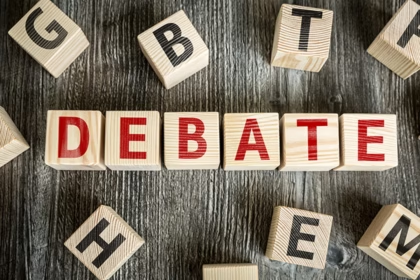Joke: Are you wearing that biryani-stained T‑shirt on purpose?” The host raises an eyebrow in response. The studio audience laughs politely, rich laughter, the kind that wears perfume. But when a stage comedian cracks the same line, in Punjabi, at a local theatre, the reaction shifts. It’s suddenly “cheap.” The same words, the same timing, but now it’s vulgar. Why? In Pakistan, the difference between “iconic” and “indecent” isn’t the joke. It’s the person telling it. From TikTok memes to stage drama slapstick, from TV anchors with fart jokes to female comics with period puns, we don’t judge the content; we judge the source. Class, gender, and language form the holy trinity of taste in Pakistan, and lowbrow humour is just the crime scene where that judgement bleeds loudest.
But let’s ask the uncomfortable question:
Who gets to be lowbrow without being punished?
What Is Lowbrow Humour?
‘Lowbrow humour’ is what the elite calls it when the working class laughs too loudly. The Urban Dictionary will tell you it’s crude, slapstick, or toilet humour. In Pakistan, think Bulbulay, viral TikToks from Lyari, Punjabi stage dramas, theatre actors hurling fart jokes at politicians with wild wigs and budget costumes. Highbrow, on the other hand, is the literary roast: carefully crafted, often in English, using metaphors and sarcasm. It’s witty, not wild. Think: satire shows with clean backdrops, polished hosts, and just enough “refined” spice to sound smart, not indecent. But these aren’t natural categories; they’re manufactured. The line between grime and grace was drawn with a British ruler.
Taste Isn’t Natural. It’s a Weapon.
French sociologist Pierre Bourdieu explained this decades ago. “Taste”, he said, “isn’t about aesthetic judgement; it’s about social class.” Your “refined sense of humour” is a cultural costume, taught through school, family, and privilege. Taste becomes a border wall. It says, ‘We laugh at the world; you laugh at yourself.’ In Pakistan, this shows up everywhere. English wordplay is applauded. Punjabi puns are ridiculed. “Clean Urdu” is classy; Saraiki is the sound of “servants”. The moment a joke crosses that language barrier, it’s considered lower, rougher, and uncouth, even if it’s funnier. “The joke didn’t flop; it just wore the wrong language.” Let’s not forget that colonialism handed us this script.British education policies like Macaulay’s Minute (1835) labelled local culture as trash, pushing English and Urdu as “civilised” and native tongues as “crude”. That legacy is alive every time we call Punjabi theatre “besharam” but giggle at English sex jokes on Netflix.
The Elite’s Right to Be Rude
Let’s talk about Aamir Liaquat.
He was once known for his risqué innuendos on live television, his questionable religious jokes, and his hosting of game shows with dance breaks during Ramadan. He was banned. He apologised. He came back. Ratings went up. Life went on. Now imagine a working-class woman joking about sex, or body hair, or flatulence on the same scale. Would she get a cushy comeback? Or would she get digitally stoned?
We know the answer.
Power in Pakistan shields vulgarity. A rich man cracks a potty joke; it’s “bold”. If a poor woman makes a similar joke, it is considered “vulgar.” The double standard is so pronounced that it can be heard in PEMRA’s bans.
PEMRA: The Laugh Police
PEMRA (Pakistan Electronic Media Regulatory Authority) has banned:
- Women hugging on TV
- Satire about politicians
- Comedy involving police uniforms
- Jokes considered “immoral”
And yet you’ll still see elite men running shows that include exactly that. Aftab Iqbal’s political mimicry? Temporarily taken off air then reinstated after elite media rallied for him. Is Faiza Saleem’s one-liner about bodily functions considered shameless? Labelled “shameless” by Twitter uncles. Natalia Gul Jilani’s dark satire? “Corrupting our youth.”
Same content. Different consequences.
In PEMRA’s eyes, it’s not the joke that’s obscene; it’s the identity of the jester.
The Stage as a Class Battlefield
Punjabi theatre has long been a punching bag of elite morality. It’s rowdy, loud, political, and packed with what the elite calls fahashi. But if you strip away the fake moustaches and belly jokes, what you see is radical honesty. Comedians like Amanullah Khan, Nasir Chinyoti, and Sohail Ahmed mocked everything the elite feared: police, poverty, lust, marriage, and mullahs. They turned fart jokes into weapons and slapstick into satire. It wasn’t “crude”; it was coded rebellion. But because they told their jokes in Punjabi, on cheap sets, to sweating crowds, not on Dawn News with spotlights and suits, they were dismissed as uncultured. Their humour was more insightful than any English panel show. “Stage drama wasn’t tasteless; it was taste-making for the masses.”
When TikTok Became the New Stage
TikTok is where working-class youth finally took the mic. No directors. No PEMRA. No filters. Just cracked camera angles, dusty backgrounds, and raw punchlines. Take a viral video of a boy mimicking an anchor from his rooftop, joking about gas loadshedding and rishta politics. It hits. It’s funny. It’s real. But then come the comments:
“Badtameezi ki bhi hadd hoti hai.”
“So uncultured.”
“These kids are destroying society.”
During that same week, a wealthy girl creates a rishta parody in English from the comfort of her air-conditioned bedroom.
She’s “bold, smart, funny.” She gets brand deals.
One laughs up. One laughs across. Only one gets applause.
The Gendered Gasp
Women don’t even have to be crude to be labelled vulgar. Faiza Saleem once joked about her period. Natalia Gul joked about mansplaining. Both got bombarded with hate. “Yehi hai feminism?” “Besharam aurat.”
Now, let a male comedian perform a risqué sketch about marriage. Viral. Praised. “When men joke about sex, it’s comedy. When women joke about sex, it’s a threat.”
And class doubles the backlash.
A wealthy woman displaying bold humour? “Empowering.”
A poor woman? “Shameless.”
God forbid she says it in Punjabi? Triple cancel.
Humour That Needs Subtitles to Be Respected
Authenticity isn’t enough. It has to be translated, sanitised, and packaged for elite consumption. A working-class man cracks a joke in Punjabi about his biryani-stained shirt? Cringe. Translate it into English, post it on X with ironic fonts and a curated feed, and suddenly it’s “a raw, powerful take on food insecurity and class trauma.”
“The rawer the humour, the more it must be filtered to be palatable.” That’s not authenticity. That’s elite-approved anthropology.
So… who gets to be lowbrow?
The answer?
People with power. People who are protected. People whose jokes can be labeled “edgy” instead of “shameful”. This isn’t just about laughter; it’s about control. Because humour is dangerous when it doesn’t ask for permission. The elite fear working-class humour because it doesn’t whisper. It roars. It mocks the same systems that reward them. It doesn’t come with subtitles. It’s loud, dirty, hilarious, and true.
What Now?
Let’s stop pretending “good taste” is objective.
Let’s stop measuring humour based on accents, incomes, and Instagram filters. The next time you hear a fart joke on stage, or a rishta parody on TikTok, or a crude line in Punjabi, don’t ask, “Is this vulgar?” Ask: Who’s allowed to say this and why? Until we deconstruct who qualifies as lowbrow, we’re not engaging in laughter, but rather engaging in gatekeeping. And maybe the loudest laugh in the room…is the one we’ve been trying to shut up.













